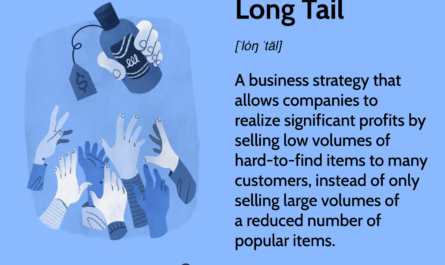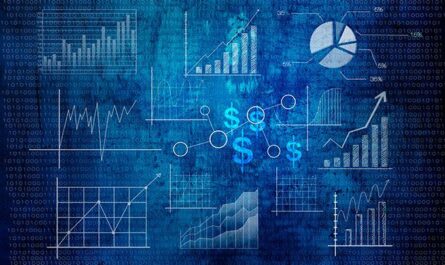An SBA loan is a business loan that is guaranteed by the U.S. Small Business Administration (SBA). These loans can be used by businesses to cover startup costs, expansions, real estate purchases, or a wide range of other business expenses.
Because SBA loans are guaranteed by a federal agency (the SBA), they are lower risk for lenders. However, when you take out an SBA loan, you will be borrowing from a lender, which is a bank or another financial institution.
Key Takeaways
- An SBA loan is a business loan that is guaranteed by the U.S. Small Business Administration (SBA).
- You can take out this kind of loan with a bank or other financial institution.
- If you fail to repay an SBA loan, the SBA will repay the lender and then you would be required to repay the SBA.
- SBA loans have fairly strict eligibility requirements, but if you qualify, they can provide low interest rates and low fees.
- SBA loans may also offer high maximum loan amounts and generous repayment schedules.
How Do SBA Loans Work?
SBA loans are used by thousands of businesses each year to borrow capital. Though they are called SBA loans after the U.S. Small Business Administration, this agency doesn’t actually do the lending. Instead, the SBA works with a network of approved financial institutions and traditional banks that lend money to small businesses, and the SBA partially guarantees the loans.
The loan guarantee means that if the borrower is unable to pay back the loan to the lender, the SBA will step in and pay the lender. This significantly reduces the lenders’ risks, which makes them more willing to lend to small businesses.
Just because the SBA will pay the lender back, however, doesn’t mean the borrower is no longer responsible for repayment. SBA loans require an unconditional personal guarantee from everyone with at least 20% ownership in a company. This means that these people are personally responsible for repaying the SBA if the business can’t make the payments.
SBA loans are almost always secured. Your lender will require collateral to secure the loan.
Terms and Requirements for SBA 7(a) Loans
There are several types of SBA loans. The most common, the standard 7(a) loan, allows businesses to borrow up to $5 million. The interest rate you’ll pay is the prime rate plus a spread. The prime rate is a benchmark rate based on the federal funds target rate, and it changes based in part on Federal Reserve Board decisions.
The size of the loan spread is dictated by the SBA. It’s determined by the size of your loan, your loan term, and your loan type (whether it is a fixed-rate loan or a variable-rate loan).
For variable-rate loans, the SBA imposes a maximum interest rate, which is from the prime rate plus 2.25% to the prime rate plus 4.75%, depending on the loan size. (As of July 2023, those rates are 10.5% to 13%.)
| Interest Rates for Variable-Rate Loans | ||
|---|---|---|
| Amount of loan | Maximum rate for loan with less than 7-year terms | Maximum rate for loan with more than 7-year terms |
| Less than $25,000 | Base rate + 4.25% | Base rate + 4.75% |
| $25,000–$50,000 | Base rate + 3.25% | Base rate + 3.75% |
| More than $50,000 | Base rate + 2.25% | Base rate + 2.75% |
For fixed-rate loans, the interest rates can range from the prime rate plus 5% to 8%, depending on the size of the loan.
| Interest Rates for Fixed-Rate Loans | |
|---|---|
| Amount of loan | Interest rate (prime rate on first business day of the month plus) |
| Less than $25,000 | 6% plus the 2% permitted by 13 CFR § 120.215 |
| $25,000–$50,000 | 6% plus the 1% permitted by 13 CFR § 120.215 |
| $50,000–$250,000 | 6% |
| More than $250,000 | 5% |
The requirements for getting an SBA loan are relatively strict. Among other requirements, you must prove that your business is a small business as defined by the SBA and that you have sought other forms of financing before applying for an SBA loan.
You must be able to provide collateral for loans larger than $25,000. You’ll also need a personal credit score that meets the lender’s criteria, such as 685 or above, and solid annual revenue from your business.
Calculating SBA Loan Interest
You can calculate how much interest you’ll pay on an 7(a) SBA loan by using the SBA’s loan calculator.
SBA Loans vs. Traditional Business Loans
| Key Differences | |
|---|---|
| SBA loans | Traditional business loans |
| Low interest rates. Variable-rate loans capped at base plus 4.75%. | Potentially higher interest rates, but it depends on the lender and your business |
| Low fees. You’ll pay an upfront guarantee fee and annual service fee for loans of more than $500,000. | Potentially higher fees, but again, this depends on your lender |
| Longer terms. If you use your SBA loan for working capital, inventory, or equipment, you’ll have 10 years to pay it back. If you use it for real estate, you’ll have 25 years. | Shorter terms |
| Hard to qualify. You’ll need to have been in business for a few years and be generating solid revenue from your business. | Can be easier to qualify for, but you should make sure you can easily make the repayments |
| Slow to fund. SBA loans can take one to three months to process. | Quick to fund. Some lenders will pay you the funds instantly after an online application. |
| Personal guarantee required. This puts your personal finances at risk if your business can’t repay the loan. | Personal guarantee not necessarily required, though some lenders may ask for this or for you to put up collateral |
Can You Get Denied for an SBA?
You can potentially get denied for an SBA loan. If you or your business has a low overall credit score, lack adequate collateral or assets to secure the loan, or already has outstanding debts, the SBA may refuse your application.
Types of SBA Loans
There are several different types of SBA loans, though some are only used in very specific circumstances. The most common types are:
SBA 7(a) Loans
- Loan limit: $5 million
- Interest rate range: Capped at the prime rate plus 2.25% to 4.75% for variable-rate loans and the prime rate plus 5% to 8% for fixed-rate loans
- Purpose: General business expenses or to fund purchases and expansion
SBA Express Loans
- Loan limit: $500,000
- Interest rate range: Capped at the prime rate plus 4.5% to 6.5% for variable-rate loans and the prime rate plus 5% to 8% for fixed-rate loans
- Purpose: Fast funding for working capital, expansion, and real estate and equipment purchases
SBA 504 Loans
- Loan limit: $5.5 million
- Interest rate: Pegged to an increment above the current market rate for 10-year U.S. Treasury issues plus fees, which total approximately 3 % of the loan amount and are rolled into the loan amount
- Purpose: Purchase of long-term, fixed assets like land, machinery, and facilities
Pros and Cons of SBA 7(a) Loans
As with any financial product, SBA loans have both advantages and disadvantages over their competitors.
-
Competitive rates
-
Low fees
-
Long terms
-
Large loan amounts
Pros Explained
- Competitive rates: SBA loan interest rates are calculated using the prime rate, to which is added an extra percentage that is known as the spread. The SBA imposes a maximum limit on what lenders can charge for SBA loans, depending on the type and size of the loan.
- Low fees: SBA loans for less than $500,000 have no fees at all. Loans for more than that charge an upfront guarantee fee. The fees are a percentage of the guaranteed portion (the portion of the loan amount that the SBA is guaranteeing) of the total or outstanding loan amount.
- Long terms: If you use your SBA loan for working capital, inventory, or equipment, you’ll have 10 years to pay it back. Use it for real estate, and you’ll have 25 years.
- Large loan amounts: Commercial lenders normally cap their maximum loan amounts at $500,000 or $1 million. SBA loans can be much larger—up to $5 million for a 7(a) loan.
Cons Explained
- Hard to qualify: To be eligible, your business needs to meet fairly strict requirements.
- Slow to fund: The SBA loan application process requires quite a lot of documentation, and even after you apply, you’ll have to wait one to three months for the funds to be released.
- Personal guarantee required: The personal guarantee means that if your business can’t make repayments, you’ll be personally liable to repay the SBA.
How to Apply for an SBA Loan
- Check eligibility: Make sure your business is eligible by checking the SBA requirements.
- Choose a lender: The SBA offers a convenient Lender Match tool to match potential borrowers with lenders within two days. You should look for a lender with extensive SBA experience.
- Gather your documentation: SBA loan applications can require a great deal of paperwork, but your lender will be able to help you gather the necessary documents.
- Submit your application: You’ll send your application to your lender, who will forward it to the SBA for approval.
- Wait: For a 7(a) loan, you might have to wait three months for the loan to be approved and funded. An SBA Express loan has lower limits, and you will pay an interest rate premium, but it is faster to fund. The SBA aims to process an SBA Express loan application within 36 hours.
Is It Hard to Get an SBA Loan?
It can be difficult to get an SBA loan because eligibility requirements are relatively strict. You’ll have to prove that your business has been generating revenue for a few years and that you have good credit to get an SBA loan.
How Long Does It Take to Get an SBA Loan?
It can take one to three months to get a standard SBA 7(a) loan. An SBA Express loan is processed much more quickly, typically within 36 hours.
What Is the Most Common Type of SBA Loan?
The SBA 7(a) loan is the most common type of SBA loan. It has a maximum loan amount of $5 million, and it can be used for a wide variety of business expenses.
What Is the Easiest SBA Loan to Get Approved for?
SBA Express loans have slightly less strict eligibility requirements than standard 7(a) loans, but they have a smaller maximum amount as well. SBA Express loans are a type of 7(a) loan.
What Is the Smallest SBA Loan Amount?
Technically, there is no lower limit for an SBA loan, but an application for $5 is not likely to be approved.
The Bottom Line
If your business meets the relatively strict requirements for an SBA loan, and if you can provide collateral and a personal guarantee, then this type of loan can be a good alternative to a traditional business loan. SBA loans have low interest rates and fees and generous repayment schedules.



